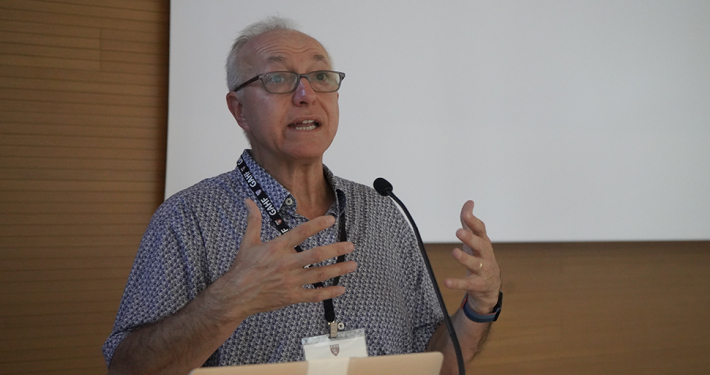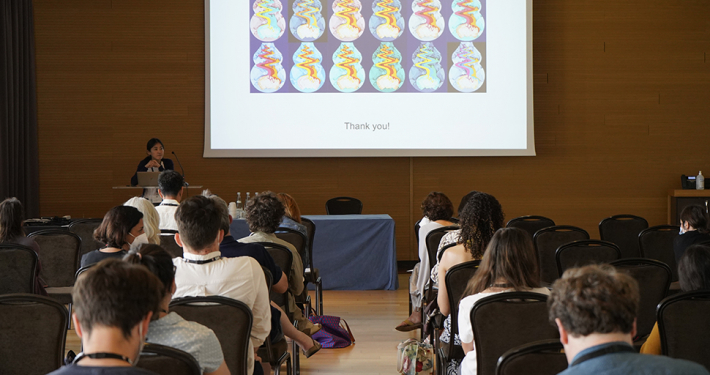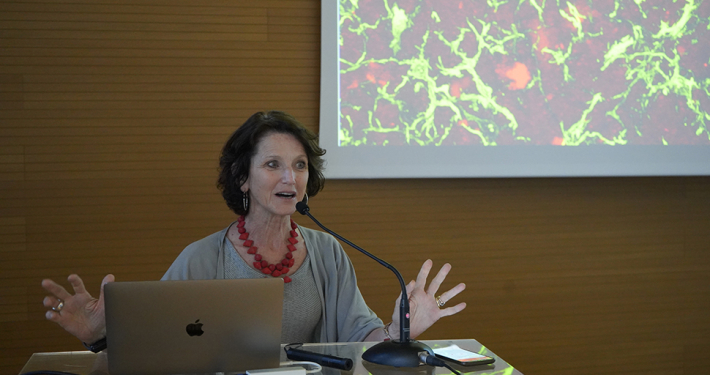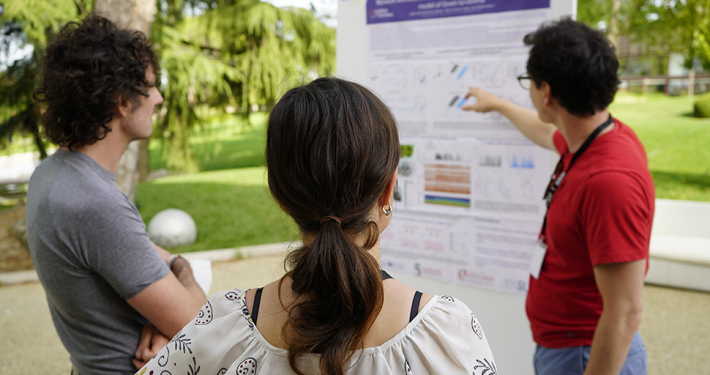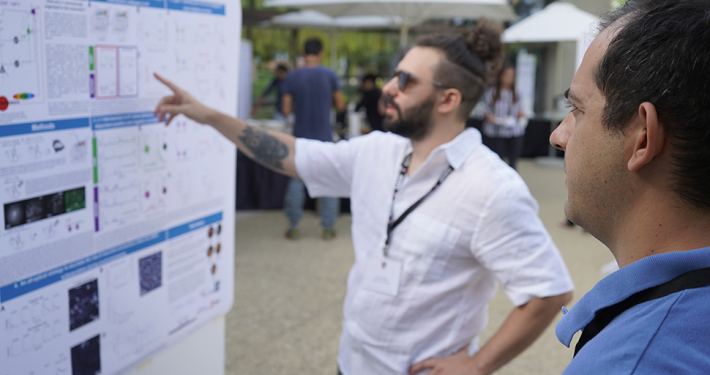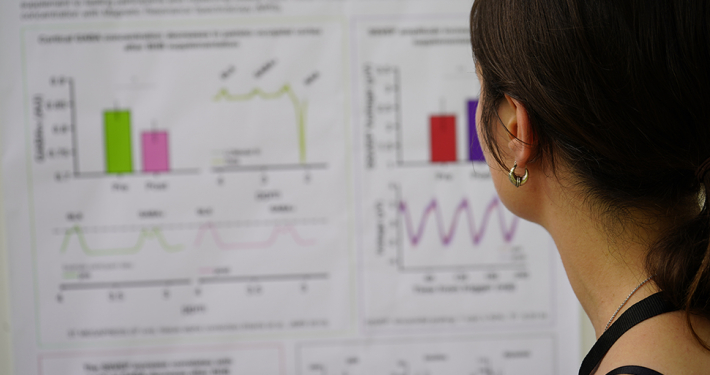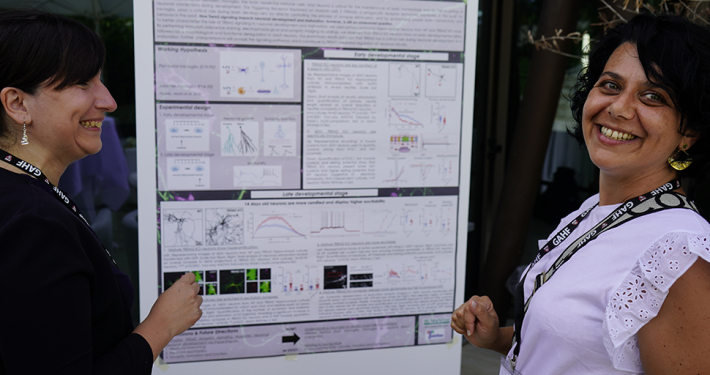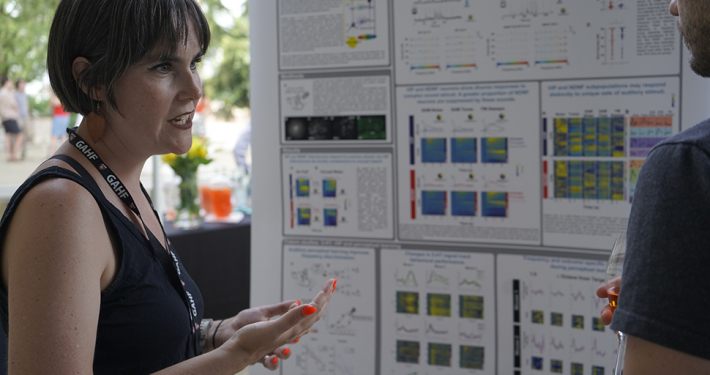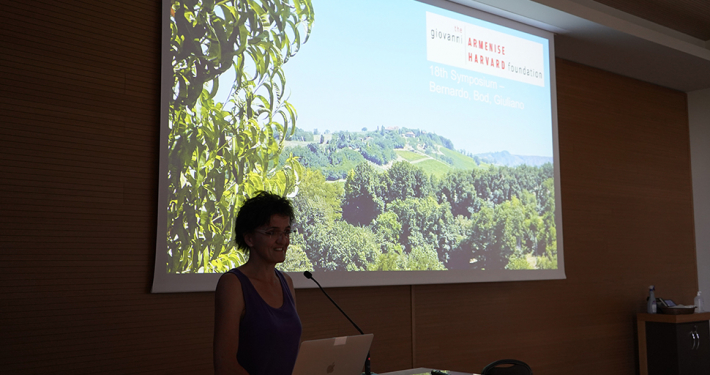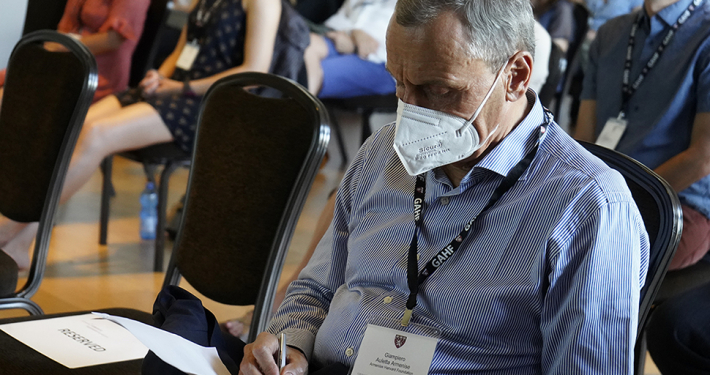ARMENISE HARVARD 18 th Symposium
Neuroscience at the Edge: Frontiers of Knowledge
June 19 – 21, 2022
Palazzo di Varignana, Varignana, Italy
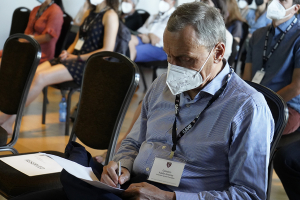
Count Giampiero Auletta Armenise
“Neuroscience at the Edge: Frontiers of Knowledge”. This was the overarching theme chosen for the 18 th Symposium of the Giovanni Armenise Harvard Foundation, held from June 19 to 22, 2022 in Varignana, Italy, in the beautiful landscape of the Bologna hills.
The international meeting, organized in the evocative atmosphere of Palazzo di Varignana, gathered researchers from European and American institutions in a three-day-long journey into the latest developments in neuroscience.
On Sunday, June 19 all delegates from the two sides of the Atlantic were welcomed by the Harvard Medical School’s Dean George Daley, who underlined the key role of the Giovanni Armenise Harvard Foundation in funding basic research both in Italy and the U.S., and in organizing precious scientific exchange opportunities such as the Symposium.
The 2022 meeting started out with a Keynote Address by Silvia Arber, neurobiologist at the University of Basel. Here, she leads a research group working on motor circuit function, exploring in particular, movement as the behavioral output of the nervous system. In fact, Arber’s Keynote Address beautifully introduced the “Neuroscience at the Edge” Symposium topic with a talk entitled Circuit solutions for programming actions. She focused on recent work showing the organization and function of neuronal circuits central to the regulation of distinct forms of body movements, including locomotion and skilled forelimb movements. Within this framework, Arber explained, movement can be really considered one of the main behavioral outputs of the nervous system.
The Armenise Harvard Foundation’s Chairman, Count Giampiero Auletta Armenise, also attended the first day of the Symposium. Before the opening Dinner, he again confirmed the support of the Armenise family to the Foundation’s mission. «My father believed, and so do I, that superb results most often come from collaboration. The Foundation intends to continue looking for ways to enhance conversation and cooperative work on both sides of the Atlantic», Count Giampiero Auletta Armenise stated.
This spirit of cooperation was reinforced during the evening with a “Jeffersonian dinner” – a format of facilitating a dinner event for the purpose of driving engaging conversation around a unified topic. This helped bridge the gap between senior and junior, European and American delegates. At each table, a moderator led the conversation through a series of open questions about the researchers’ life, ambitions, and challenges.
Then, on the following two days, an intense scientific program kicked off. Overall, 19 outstanding scientific talks were given, half by American and half by European researchers, often presenting ground-breaking and yet-unpublished research. The talks were organized over 4 main sessions: Development, synaptic plasticity and disabilities, Mechanisms for perception, action and cognition, Novel neurotechnologies, and Brain/Body interactions.
Along with the talks sessions, around 30 scientists presented posters in two different outdoor poster sessions. This gave group leaders and younger researchers a unique chance to discuss their work, and explore new collaboration opportunities.
The task of closing the 18 th Armenise Harvard Symposium fell to Paola Bovolenta, Head of the Development and Differentiation Department at the Center for Molecular Biology Severo Ochoa, in Madrid, Spain. Her research group aims to define the molecular mechanisms that control the early development of the vertebrate nervous system. Paola Bovolenta gave an inspiring Closing Keynote entitled Multiple roles of SFRP1 in Alzheimer’s disease pathogenesis and its potential relevance as therapeutic target.
«I must say that I feel like a little intimidated to give the closing lecture after hearing so much excellent science during these days, especially because I will talk about Alzheimer’s disease – a field in which we are really newcomers in comparison with our long-standing interest in developmental biology», Paola Bovolenta said.
But closing the “Neuroscience at the Edge: Frontiers of Knowledge” Symposium with Bovolenta’s talk was particularly meaningful, as Alzheimer’s disease is a pathology with an enormous health and socio-economic impact, due to its devastating effects on cognition and alarming prevalence in the aging population. Although enormous progress has been made, the real essence of Alzheimer’s disease is still far from being understood. That’s why unraveling he molecular mechanisms underlying the development of Alzheimer’s disease, as the Bovolenta lab is doing, is crucial to push the study of neuroscience to the next frontier.

